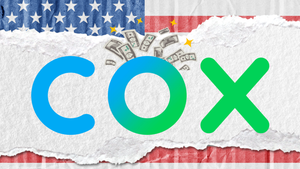The US government has further ramped up its support for Cox Communications as the internet service provider seeks to overturn the billion dollar copyright judgement secured against it by the major record companies six years ago.
US Solicitor General D John Sauer, put in place by Donald Trump, has asked to give oral evidence when the Supreme Court considers the case later this autumn. He’s told the court that Cox is happy to give him ten of its 30 scheduled minutes of argument time, knowing that the government is basically taking the ISP’s side in this big dispute.
This potentially presents a significant set back for the music industry. The billion dollar damages pay-day for the major labels is one thing, but the bigger thing at stake here is a legal precedent that has been crucial for labels in forcing ISPs to do more to combat copyright infringement.
Previous rulings in this case empowered the music industry in its ongoing fight against online piracy and it looks like all that could now be overturned.
The court that heard the initial case concluded that Cox was liable for music piracy undertaken by subscribers to its broadband internet service, because it failed to take effective action to deal with repeat infringers among its customer base who had been identified by the record companies.
The rulings made it clear that - if users of an ISP are committing piracy - the internet provider needs to play a proactive role in cracking down on that activity and help stop any copyright infringement that is happening on its network.
But according to Cox, if the rulings stand it will be forced to disconnect high numbers of internet accounts on the say so of record labels, even if lots of people utilise the same internet connection in addition to any alleged copyright infringer. And that’s a major issue, it adds, because we now live in a world where internet access is as important as access to electricity or water.
The US government seems to have bought into that doom and gloom narrative. In a filing with the Supreme Court asking to be allowed to give oral evidence, Sauer says “The United States has a substantial interest in the effective protection of intellectual property, which represents a significant portion of the nation’s economy”.
However, he adds, “At the same time, the United States has a substantial interest in fostering technological developments and beneficial uses of digital technologies and in ensuring the broad availability of critical communications services like the internet”.
In an earlier court submission, Sauer set out why he believes the lower courts were wrong to hold Cox liable for its users’ piracy, echoing many of the arguments previously presented by Cox itself.
It’s obviously for the judges on the Supreme Court to ultimately decide whether the lower courts properly applied American copyright law in this case, but the fact Cox has the backing of the US government is nevertheless significant. And the fact Cox is willing to gift a third of its argument time to Sauer suggests its lawyers believe his support could be key in securing the reversal of this landmark music piracy ruling.
For the major labels, that opens up the prospect of losing out to the tune of a billion dollars in damages - but for the wider music industry, it could greatly hinder the ability of record labels and other music companies to take action against pirates.

